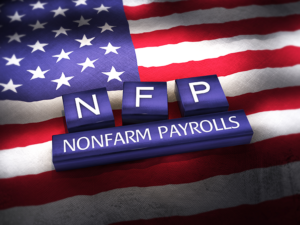
Decoding Financial Scams: A Brief Guide for Investors

In the vast and complex world of finance, where opportunities for investment abound, there also lurk dangers in the form of financial scams. These schemes come in various shapes and sizes, often promising lucrative returns but delivering nothing but losses and heartache. For investors, navigating this landscape can be daunting, but with the right knowledge and awareness, it’s possible to steer clear of these pitfalls. In this blog, we’ll decode financial scams, offering investors a brief guide to recognize and avoid them.
Understanding Financial Scams
Financial scams are fraudulent schemes designed to deceive investors, often through false promises of high returns or low-risk investments. They prey on individuals’ desires to grow their wealth quickly and easily, exploiting trust and ignorance along the way. While the specifics of each scam may vary, they typically share common characteristics and red flags that investors can learn to recognize.
Common Types of Financial Scams
Among the myriad of financial scams out there, several types are particularly prevalent:
Ponzi Schemes: Named after the infamous Charles Ponzi, these schemes involve using funds from new investors to pay returns to earlier investors. They require a constant influx of new money to sustain themselves and inevitably collapse when the flow of new investors dries up.
Pyramid Schemes: Similar to Ponzi schemes but often disguised as legitimate multi-level marketing programs, pyramid schemes rely on recruiting new participants who must pay to join. As more recruits join, those at the top reap rewards while those at the bottom struggle to recoup their investments.
Pump and Dump Schemes: In these schemes, fraudsters artificially inflate the price of a stock through false or misleading statements, enticing investors to buy in. Once the price has been pumped up, the perpetrators sell off their shares at a profit, causing the price to plummet and leaving other investors with losses.
Advance Fee Fraud: This type of scam involves convincing investors to pay a fee upfront in exchange for the promise of even greater returns later on. However, once the fee is paid, the perpetrators disappear, leaving the investors with nothing to show for their money.
Red Flags to Watch Out For
While financial scams can take on many forms, they often exhibit certain warning signs that investors should be wary of:
- Unrealistic Returns: Be skeptical of investments promising high returns with little or no risk.
- Pressure to Act Quickly: Scammers often create a sense of urgency to prevent investors from conducting thorough research or seeking advice.
- Lack of Regulation or Transparency: Legitimate investment opportunities are typically registered with regulatory authorities and provide clear information about their operations.
- Complexity: If an investment opportunity is difficult to understand or explain, it may be a sign of a scam.
Protecting Yourself Against Financial Scams
Fortunately, there are steps investors can take to protect themselves from falling victim to financial scams:
- Do Your Due Diligence: Research any investment opportunity thoroughly, including the background of the company and the people behind it.
- Consult Trusted Sources: Seek advice from financial professionals or regulatory agencies to verify the legitimacy of an investment.
- Stay Skeptical: If something sounds too good to be true, it probably is. Trust your instincts and don’t be afraid to ask questions.
- Diversify Your Investments: By spreading your investments across different assets, you can mitigate the risk of losses from any single scam.
Financial scams pose a significant threat to investors, but by educating yourself and remaining vigilant, you can reduce the risk of falling victim to them. By understanding the common types of scams, recognizing their red flags, and taking proactive steps to protect yourself, you can navigate the financial landscape with confidence and peace of mind.
Never miss any important news. Subscribe to our newsletter.
Related News


USD/INR Slows Down Amid Mixed Indian PMI Data.


USD/INR Rises as Markets Anticipate Fed Rate Decision.


Gold Price Nears Record High Amid Strong Safe-Haven Demand.



USD/INR Gains Momentum Amid Trade Tariff Uncertainty.



Never miss any important news. Subscribe to our newsletter.
Editor's Pick


USD/INR Slows Down Amid Mixed Indian PMI Data.


USD/INR Rises as Markets Anticipate Fed Rate Decision.



